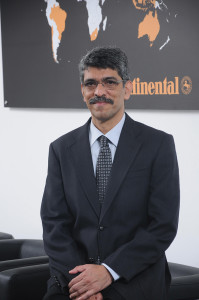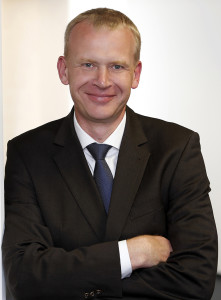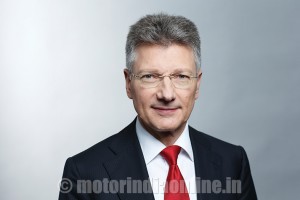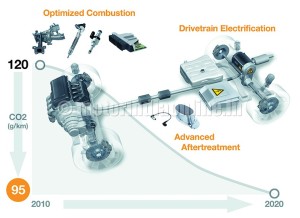In 2014, Continental has announced 100 per cent ownership of the joint venture with Emitec Emission Control Technologies. Emitec, founded in 1986 and based in Lohmar, Germany, was formerly a 50:50 joint venture between Continental and GKN. With this acquisition, Emitec has been integrated into Continental’s Powertrain Division, merging with Business Unit Fuel Supply (FS) to form a new Business Unit Fuel & Exhaust Management (FEM).

In addition to production sites in Lohmar and Eisenach in Germany, Faulquemont in France and Fountain Inn in South Carolina, USA, Emitec has a plant in Pune.
Continental’s Powertrain Division develops and produces innovative and efficient system solutions for vehicle powertrains. The Division’s range of products includes gasoline and diesel injection systems, engine management and transmission control, sensors and actuators, exhaust aftertreatment technologies, fuel supply systems, and components and systems for hybrid and electric drives. With the integration of Emitec, which develops and produces metallic catalyst substrates, particle filters, and dosing modules for selective catalytic reduction (SCR), Continental now offers a comprehensive portfolio of exhaust-gas aftertreatment systems. SCR technology involves injecting a urea-water solution into the exhaust stream to reduce the amount of nitrogen oxide in exhaust gases.
“Our global production sites provide excellent expansion opportunities for Emitec’s current products. Emitec, on the other hand, is strongly represented in the commercial-vehicle and two-wheeler sector, which can help us gain access to new market segments. The two-wheeler market in India, for example, offers tremendous opportunities for our new business unit,” says Dr. Markus Distelhoff, Head of the new Business Unit Fuel & Exhaust Management, and former Head of Business Unit Fuel Supply.
“With more stringent emission standards worldwide, such as Euro 6, almost all diesel vehicles will need a SCR system in the medium term. Specifically in India, the nationwide implementation of Bharat Stage IV (BS IV) will drive up the take rate on SCR in the commercial vehicle segment, creating significant opportunities for our new Business Unit Fuel & Exhaust Management in India”, says Claude d’Gama Rose, Managing Director, Continental Automotive Components India.

Continental Powertrain will now be able to offer emission reduction technologies as complete systems to customers in the future due to its wide product portfolio.
One of former Emitec’s prominent product offerings is the metal substrate METALIT with standard and turbulence generating structured foils, which improves heat and mass transfer while increasing catalyst effectiveness by up to 30 per cent. This makes it possible to achieve excellent conversion rates with minimum pressure loss and substantial precious metal savings even where installed space is limited. These find application as substrate for oxidation catalyst, three-way catalyst and SCR catalyst.
Another promising product is EMICAT, which is an electrically heated catalyst with an integrated heating function that uses battery power to heat exhaust gas, thus improving cold start and low temperature effectiveness.
For diesel engines, Continental offers a simple but innovative solution in the form of PM-METALIT, which is a partial flow deep bed filter with diffusive particle separation. This enables continuous passive regeneration and also ensures maintenance-free operation.
Continental forecasts higher sales
Continental Corporation has decided to increase its sales forecast for the current fiscal. This is based on the sales rising by 14 per cent to around 9 billion euros, resulting in a 12 per cent rise in net income coming close to 657 million euros in the first quarter of 2015.

The CEO, Dr. Elmar Degenhart, said of the results: “The first quarter results have shown that Continental is growing faster than the markets, and the positive effects witnessed in foreign exchange are acting as a catalyst to the growth. Continental is expecting a tailwind of around 150 million euros for the year as a whole owing to the ongoing stable price for rubber and ever falling prices of crude oil.”
